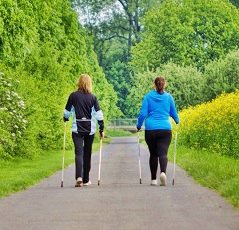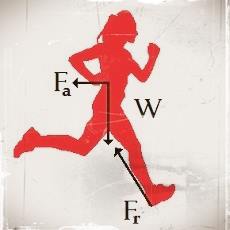Eggs, cholesterol, and health
Eggs are good for you
Fact Checked
×All the content published in our website is fact checked to validate its accuracy.
Visit our guidelines web page to learn more about our strict processes regarding how we review our content's sources: reliable and reputable journals, media websites, universities, colleges, organizations, and professionals.
Our articles are based on scientific evidence, and the references are included in its footnotes, which are clickable links to sound scientific papers.
First published: 26. Dec.2024
Can an egg a day keep the doctor away?
The truth behind Eggs and cholesterol, Are eggs bad for your heart?
Science-based evidence shows that processed foods and the Western diet are to blame for CVD, not eggs.
This article explores the facts behind heart disease, mortality, cholesterol, and egg consumption.
References and Further Reading
(1) Sugano M, Matsuoka R., (2020). Nutritional Viewpoints on Eggs and Cholesterol. Foods. 2021 Feb 25;10(3):494. doi: 10.3390/foods10030494. PMID: 33669005
(2) Carson JAS, Lichtenstein AH, Anderson CAM, Appel LJ, Kris-Etherton PM, Meyer KA, Petersen K, Polonsky T, Van Horn L, (2020). Dietary Cholesterol and Cardiovascular Risk: A Science Advisory From the American Heart Association. American Heart Association Nutrition Committee of the Council on Lifestyle and Cardiometabolic Health; Council on Arteriosclerosis, Thrombosis and Vascular Biology; Council on Cardiovascular and Stroke Nursing; Council on Clinical Cardiology; Council on Peripheral Vascular Disease; and Stroke Council. . Circulation. 2020 Jan 21;141(3):e39-e53. doi: 10.1161/CIR.0000000000000743. Epub 2019 Dec 16. PMID: 31838890
(3) Wu F., Zhuang P., Zhang Y., Zhan C., Zhang Y., Jiao J., (2021). Egg and Dietary Cholesterol Consumption and Mortality Among Hypertensive Patients: Results From a Population-Based Nationwide Study. Front. Nutr. 2021;8:1–10.
(4) Andersen CJ, Huang L, Zhai F, Esposito CP, Greco JM, Zhang R, Woodruff R, Sloan A, Van Dyke AR, (2023). Consumption of Different Egg-Based Diets Alters Clinical Metabolic and Hematological Parameters in Young, Healthy Men and Women. Nutrients. 2023; 15(17):3747. https://doi.org/10.3390/nu15173747
(5) Soliman GA., (2018). Dietary Cholesterol and the Lack of Evidence in Cardiovascular Disease. Nutrients. 2018; 10(6):780. https://doi.org/10.3390/nu10060780
(6) Jea Woo Kang, Angela M. Zivkovic, (2022). Are eggs good again? A precision nutrition perspective on the effects of eggs on cardiovascular risk, taking into account plasma lipid profiles and TMAO, . The Journal of Nutritional Biochemistry, Vol 100, 108906, ISSN 0955-2863, https://doi.org/10.1016/j.jnutbio.2021.108906.
(7) Wang Z, Bergeron N, Levison BS, Li XS, Chiu S, Jia X, Koeth RA, Li L, Wu Y, Tang WHW, Krauss RM, Hazen SL. , (2019). Impact of chronic dietary red meat, white meat, or non-meat protein on trimethylamine N-oxide metabolism and renal excretion in healthy men and women. Eur Heart J. 2019 Feb 14;40(7):583-594. doi: 10.1093/eurheartj/ehy799. PMID: 30535398
(8) David Spence J, (2016). Dietary cholesterol and egg yolk should be avoided by patients at risk of vascular disease. Journal of Translational Internal Medicine, 14 Apr 2016, 4(1):20-24 https://doi.org/10.1515/jtim-2016-0005 PMID: 28191513
(9) Darooghegi Mofrad M, Naghshi S, Lotfi K, Beyene J, Hypponen E, Pirouzi A, Sadeghi O., (2022). Egg and Dietary Cholesterol Intake and Risk of All-Cause, Cardiovascular, and Cancer Mortality: A Systematic Review and Dose-Response Meta-Analysis of Prospective Cohort Studies. Front Nutr. 2022 May 27;9:878979. doi: 10.3389/fnut.2022.878979. PMID: 35711545
(10) Li MY, Chen JH, Chen C, Kang YN., (2020). Association between Egg Consumption and Cholesterol Concentration: A Systematic Review and Meta-analysis of Randomized Controlled Trials. Nutrients. 2020 Jul 4;12(7):1995. doi: 10.3390/nu12071995. PMID: 32635569
(11) Fuller, Nicholas R et al., (2018). Effect of a high-egg diet on cardiometabolic risk factors in people with type 2 diabetes: the Diabetes and Egg (DIABEGG) Study—randomized weight-loss and follow-up phase. The American Journal of Clinical Nutrition, Volume 107, Issue 6, 921 - 931 June 2018
(12) Qin C, Lv J, Guo Y on behalf of the China Kadoorie Biobank Collaborative Group, et al, (2018). Associations of egg consumption with cardiovascular disease in a cohort study of 0.5 million Chinese adults. Heart 2018;104:1756-1763.
About this Article
Eggs, cholesterol, and health, A. Whittall
©2024 Fit-and-Well.com. First Published: 26.Dec.2024. Update scheduled for 26.Dec.2027. https://www.fit-and-well.com/diet-food/eggs-cholesterol-and-health.html




